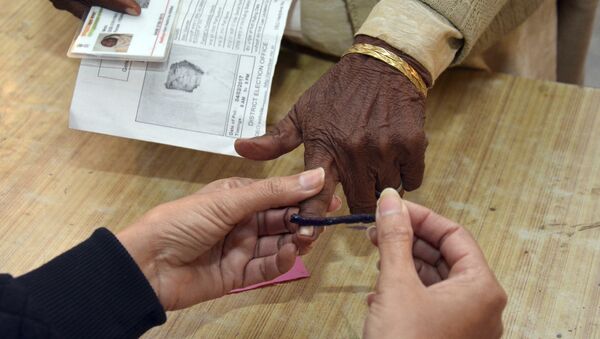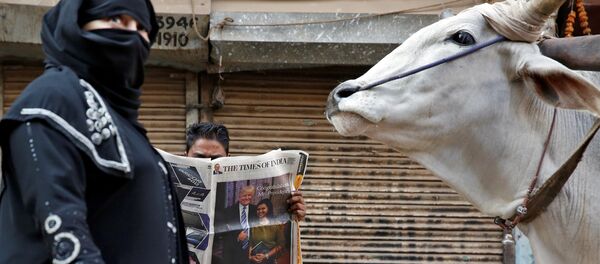The demonstrations, organized by the male-run Nagaland Tribes Action Committee (NTAC), turned violent, with protesters setting government vehicles on fire and blocking roads after the chief minister of Nagaland, T.R. Zeliang, refused to meet their demands and step down. The riots have already seen two people killed by police, and dozens of others wounded.
"Allowing women reservations would be a scar on our age-old customary laws," complained K.T. Vilie of the NTAC, cited by Reuters
Vilie also claimed that a women's quota would go against Article 371A of the Indian Constitution, which grants special status to Nagaland and safeguards its traditional laws. The state has never, until now, allowed a woman to occupy an administrative position.
Women’s reservation in politics will lead to corruption: Nagaland tribal leaders https://t.co/8rCfUfODuY@utpal_parashar reports pic.twitter.com/zDSpknyYQw
— Hindustan Times (@htTweets) 4 февраля 2017 г.
"Our customary laws are deeply rooted in patriarchy," feminist writer Monalisa Changkija told the Indian Express newspaper.
"The fear is that women would finally have a say in how resources are used and shared in towns, which could then spill over to villages."
In April 2016, India's Supreme Court ruled in favor of a petition from the Naga Mothers' Association, the state's leading women's rights group, urging the state government to reserve one-third of the government seats in urban elections for women.
Women hold less than 12 percent of seats in parliament in India, compared to a global average of 23 percent.
A Women's Reservation Bill, mandating 33 percent of the seats in national and state assemblies be occupied by women, was introduced in 1996 and passed India's upper house in 2010.




